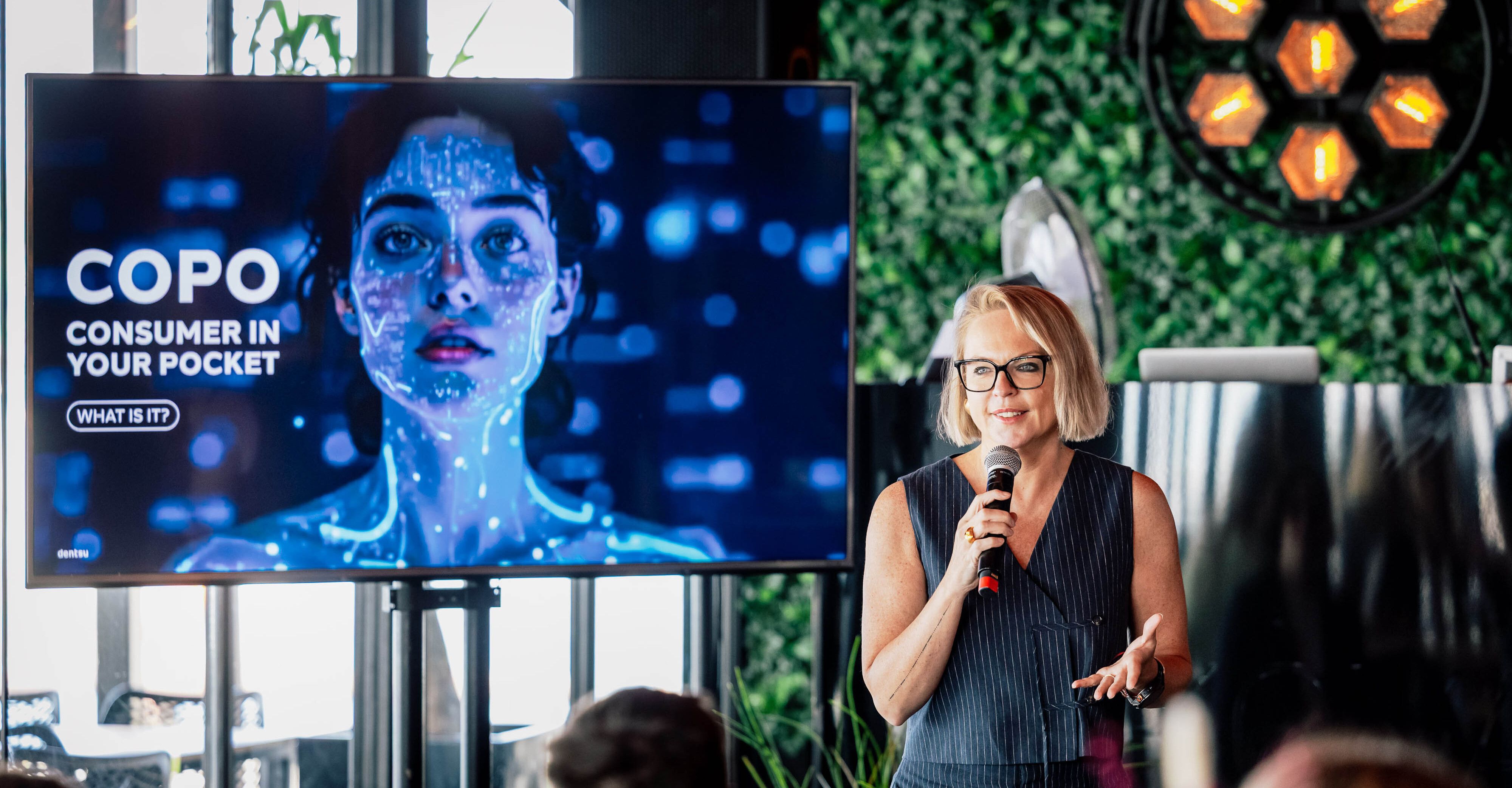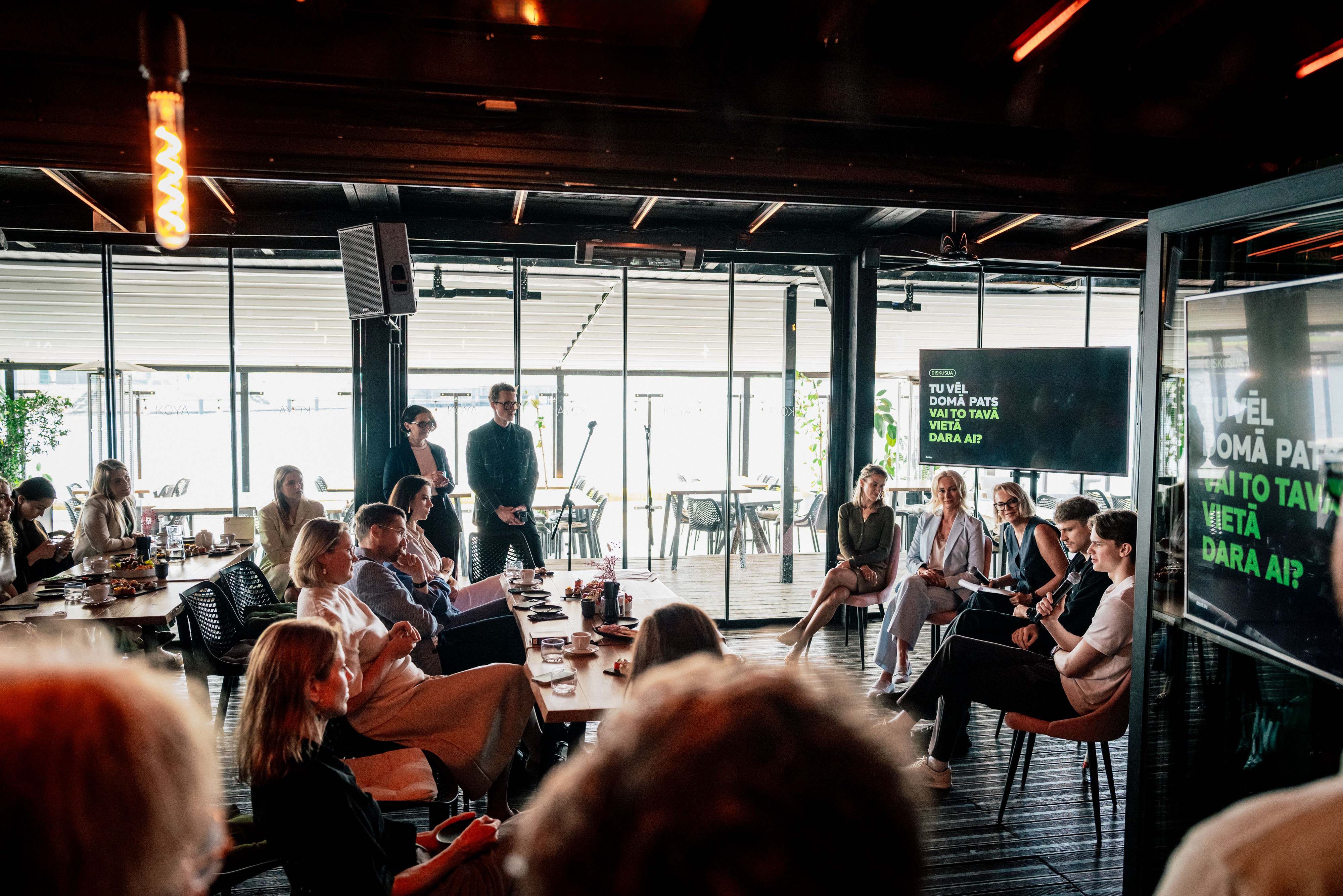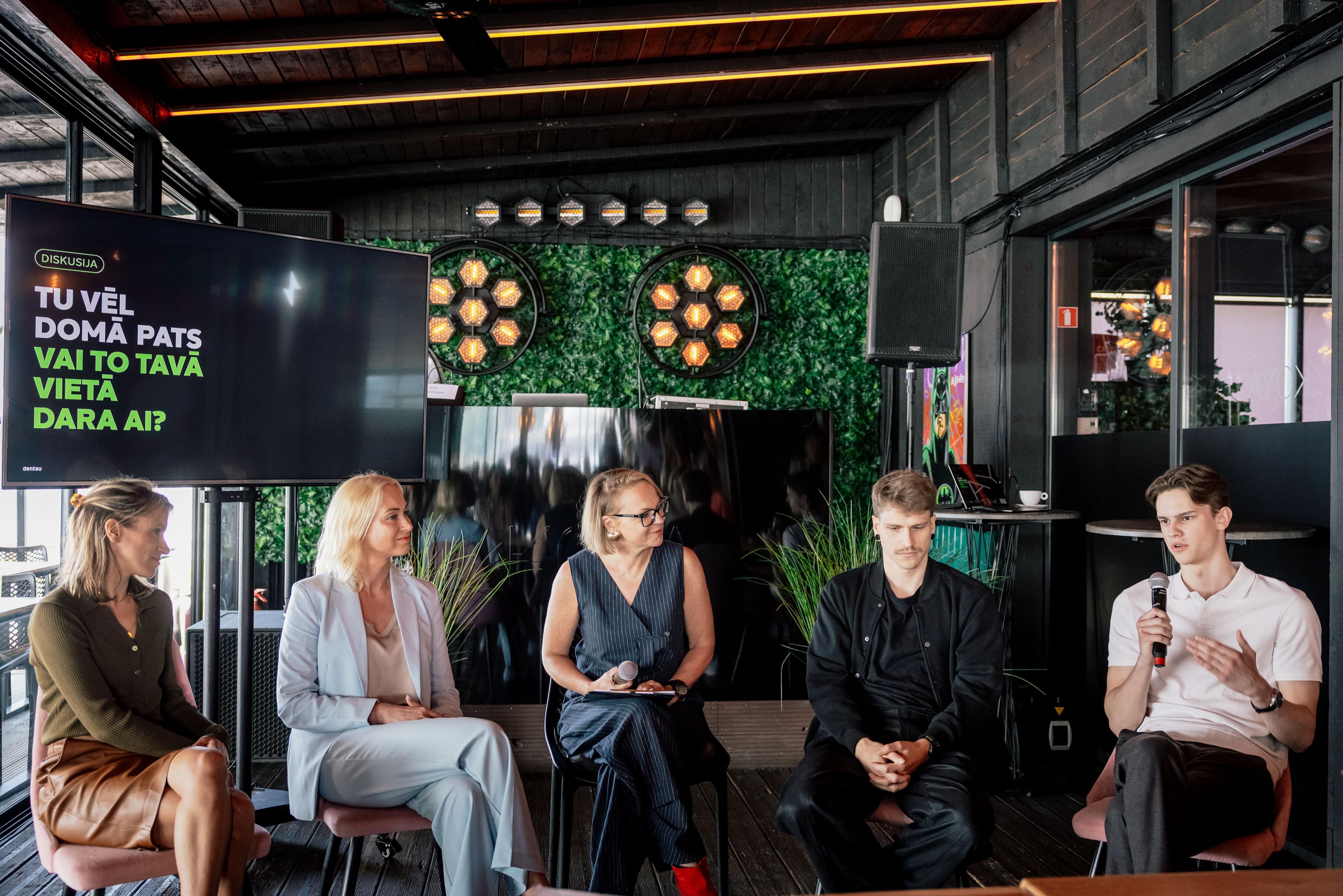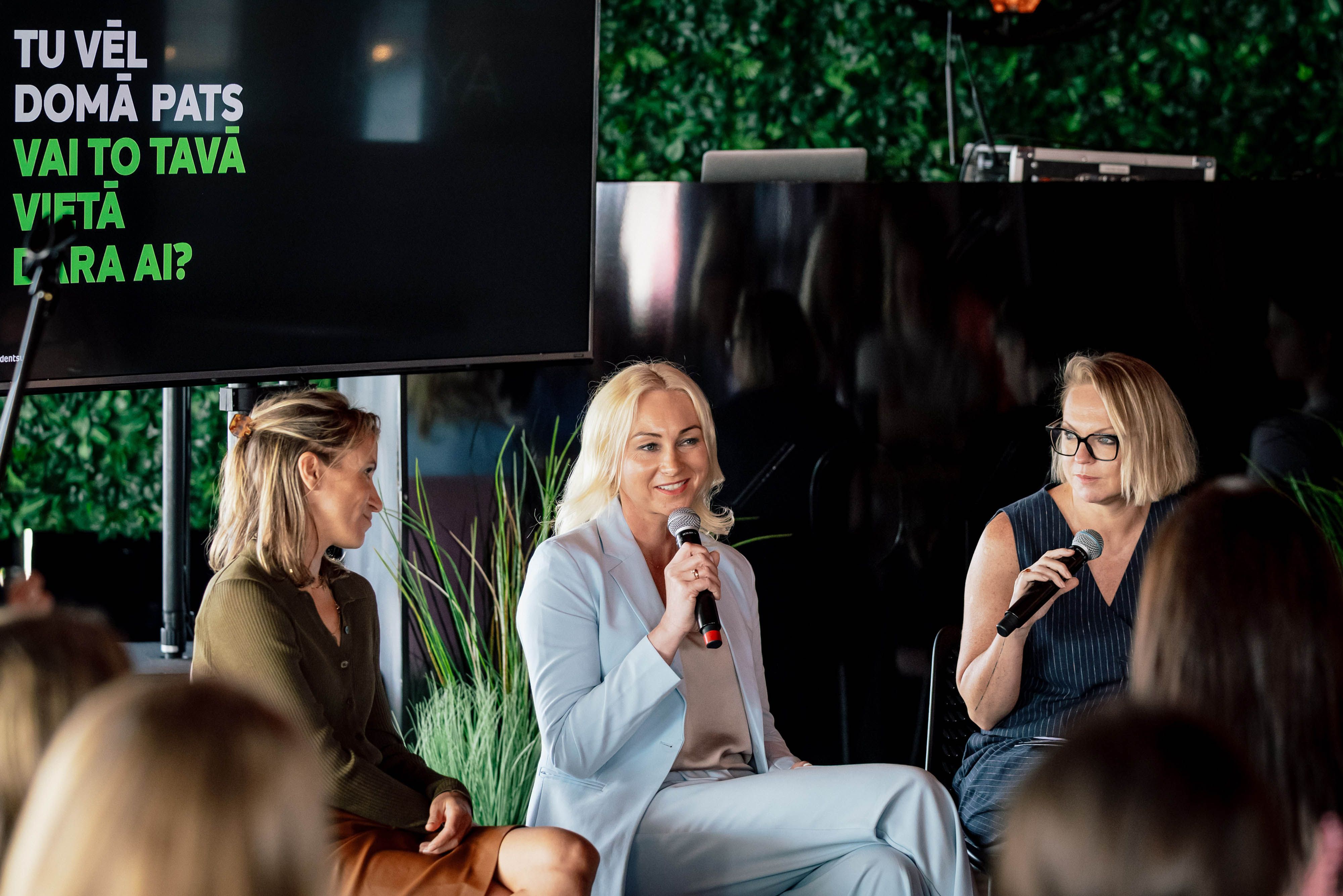We have developed the first AI solution for consumer analysis in the Baltics – COPO.

To help brands work more efficiently in developing marketing strategies, the media and research agency Dentsu Latvia has created an AI tool called COPO (Consumer in Your Pocket). It is the first AI solution of this level in the Baltics, combining consumer and competitor research, creative material, and media campaign analysis into a unified system based on real data.
“COPO allows companies to model strategies, understand consumer behavior, test ideas, and analyze competitors without the need for traditional focus groups. It’s enough to ‘have a conversation’ with a representative of your target audience—this virtual persona built from real data—to make fast and well-founded business decisions,” emphasizes Dentsu Latvia CEO, PhD, and Riga Technical University lecturer Linda Saulīte-Subatniece. “This isn’t about blindly relying on tech tools, but about closer collaboration with your target customer. Speed and depth of insight—that’s what COPO delivers to companies today.”
Saulīte-Subatniece adds that COPO’s development and testing took over a year. Currently, it works as a chatbot, but in the near future, in collaboration with Microsoft, there are plans to develop visual virtual avatars, bringing customer profiles to life and enabling consultation via video calls.
In the AI Era, Human Value Becomes a Luxury, Experts Say
COPO is just one example of how AI is being integrated into business processes. At the Dentsu Latvia-hosted discussion “Are You Still Thinking for Yourself, or Is AI Doing It for You?”, digital strategy and media experts discussed AI’s growing role and the challenges it brings to modern business.
Participants included TV3 Group CEO Ginta Salmane, Dentsu Latvia strategist and client director Rita Breice, White Label digital strategy director Rihards Zeilis, and Riga Stradiņš University student and emerging professional Ričards Viņķis.
Artificial intelligence is becoming a strategic ally in improving business efficiency, but it also creates a potential threat to creativity and originality. The risk of uniformity is the price brands pay if they rely solely on algorithms. Experts unanimously agreed that while AI can generate the right answers, the key lies in whether the human knows how to ask the right questions. “The only thing limiting AI is the human behind it. That’s why we need to work on ourselves and our abilities to fully use this tool’s potential,” said Dentsu Latvia strategist and client director Rita Breice.
The ability to be unique, to understand cultural context, and to connect the seemingly unconnectable—that’s the human-added value that technology still can’t replace. “The audience, too, shows maturity in distinguishing original content from AI-generated material—they expect uniqueness, not imitation,” noted White Label digital strategy director Rihards Zeilis.
Ginta Salmane, CEO of TV3 Group, pointed out that AI technologies are significantly easing workloads in the media industry—for example, by automating transcription, translation, and content structuring. Still, human presence in the process remains irreplaceable: “AI cannot offer an objective viewpoint or guarantee content quality, especially in journalism,” Salmane emphasized.



Share the article

